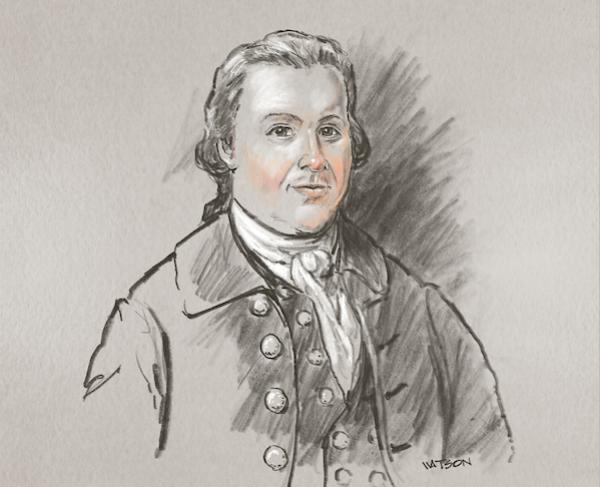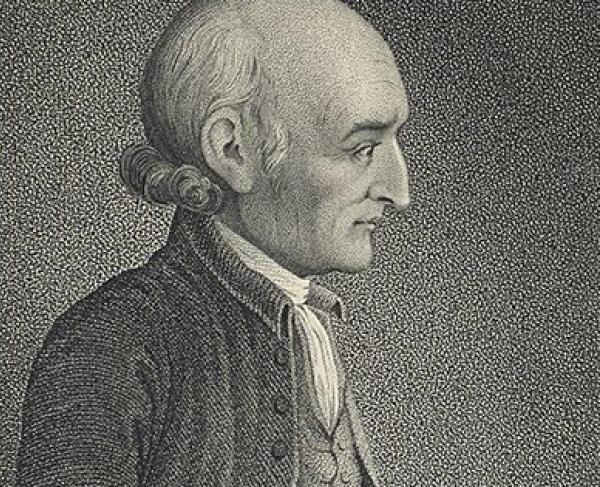Button Gwinnett

Born in 1735 in Staffordshire, England, Button Gwinnett grew up there and married his wife Ann in 1757. They had three daughters, and Gwinnett was a merchant with a successful shipping business trading with the British colonies in North America. In 1765, he decided to move to the colony of Georgia. His wife and daughters followed him a short time later.
Gwinnett hoped to continue his mercantile business in Savannah, Georgia. However, after a time, he sold his business and bought a small plantation on St. Catherine’s Island, south of the city of Savannah. Unfortunately, this venture ended badly with accumulating debts and creditors seizing his property. Community members did not hold his financial difficulties against him, and Gwinnett was appointed a justice of the peace which started his political career. From 1769-1771, he served as an elected member of the Georgia General Assembly.
As tensions and protests escalated in the colonies, Gwinnett faced the decision of supporting Britain and Parliament or the interests of the American colonies. On January 20, 1776, he left Georgia to travel to Philadelphia as one of the representatives at the Second Continental Congress. Later that summer, he signed his name to the Declaration of Independence, one of eight of the fifty-six signers born outside the colonies.
Returning to Georgia, Gwinnett tried to take command of a local military battalion to fight for the independence he has supported by signature. However, the battalion’s leadership went to Lachlan McIntosh, and a bitter rivalry emerged between the two men. Gwinnett went back to state politics, serving temporarily as the governor, but failing to win re-election.
In the Spring of 1777, Gwinnett accused McIntosh’s brother of treason at the same time the Georgia Assembly was investigated a failure military operation that McIntosh had overseen. Angered, McIntosh publicly declared that Gwinnett was “a scoundrel and a lying rascal.” Gwinnett challenged him to a duel.
The two met on May 16, 1777, with dueling pistols, and both men fell with leg wounds. Gwinnett died of infection on May 19 and was buried in Savannah’s Colonial Park Cemetery.
Button Gwinnett was lamented by other Declaration of Independence Signers who remembered his commitment to Liberty and the State of Georgia. In 1818, the Georgia General Assembly named a county in his honor.


